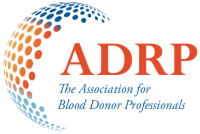A typology of strategies that recognize, reward, and incentivize blood donation
Full article available for purchase in link provided
Authors
Kathleen Chell, Barbara Masser, Tanya E. Davison, Eamonn Ferguson
Abstract
Background
Blood collection agencies (BCAs) worldwide are continuously looking to improve recognition, reward, and incentive (RRI) policies to optimize the recruitment and retention of blood donors. However, given the inconsistent categorization and variety of strategies available, there is a need for a theoretically informed and empirically supported framework to guide RRI research and policy development.
Study Design and Methods
Survey data from 1028 voluntary nonremunerated whole blood and plasma donors in Australia was used to validate a theorized RRI typology based on distinctions between the level of congruency with the act of donating blood (congruent vs. incongruent), visibility of acknowledgment (public vs. private), benefits provided (self vs. other), and likely reinforcement schedule (fixed vs. variable).
Results
A six-factor solution met all statistical criteria and was most consistent with a priori theoretical underpinnings. The factors were labeled (i) deal promotion, (ii) loyalty program, (iii) BCA token, (iv) health check, (v) charity donation, and (vi) travel compensation.
Discussion
This typology provides researchers with a standardized theoretical and conceptual framework to organize and synthesize findings from the existing literature and help BCAs develop RRI policies that are likely to be successful. We present a future research agenda across and within the RRI strategies.
August 4, 2022
Related Resources
Engaging blood donors as advocates Social media preferences and associations with marketing
Background: Various critical medical procedures would become impossible without blood donations—saving lives in emergencies, surgeries, and chronic conditions like thalassemia. Therefore, it seems crucial to enhance donor recruitment and ensure…
Rethinking the role of older donors in a sustainable blood supply
INTRODUCTION Many countries, particularly high human development index countries, are facing the challenge of an aging population.1 For Blood Collection Agencies (BCAs) in these countries, an aging population poses two…


